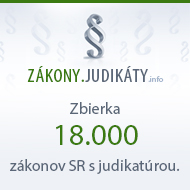Electronic system for individual monitoring
Abstrakt: Príspevok sa zaoberá problematikou elektronického monitoringu osôb. Obsah zahŕňa najmä spôsob zavedenia projektu ESMO do praxe, jeho právny základ ako aj možnosti využitia tohto projektu. Osobitná pozornosť je venovaná jednotlivým krokom, ktoré musia byť naplnené, aby tak došlo k úspešnej realizácii monitorovania konkrétnej osoby. Článok tiež poskytuje vymedzenie oblastí, v rámci ktorých možno ESMO využiť, teda nie len oblasť trestnú ale aj civilnú. V závere je podrobne rozobraný trest domáceho väzenia za súčasného využitia technických prostriedkov.
Kľúčové slová: technické prostriedky, trest domáceho väzenia, probačný a mediačný úradník, elektronický náramok, monitoring.
Abstract: The publication deals with electronic monitoring of persons. Content includes in particular the method of introducing the ESMO project into practice, its legal basis as well as the possibilities of this project. Special attention is given to individual steps that must be filled, so there was a successful implementation of monitoring a particular person. The publication also provides a definition of the areas in which it can be used ESMO, therefore, not only the area of criminal but also civil. The conclusion is detailed dismantled home imprisonment, while the use of technical means.
Key words: hardware, home imprisonment, probation and mediation officer, electronic bracelet, monitoring.





